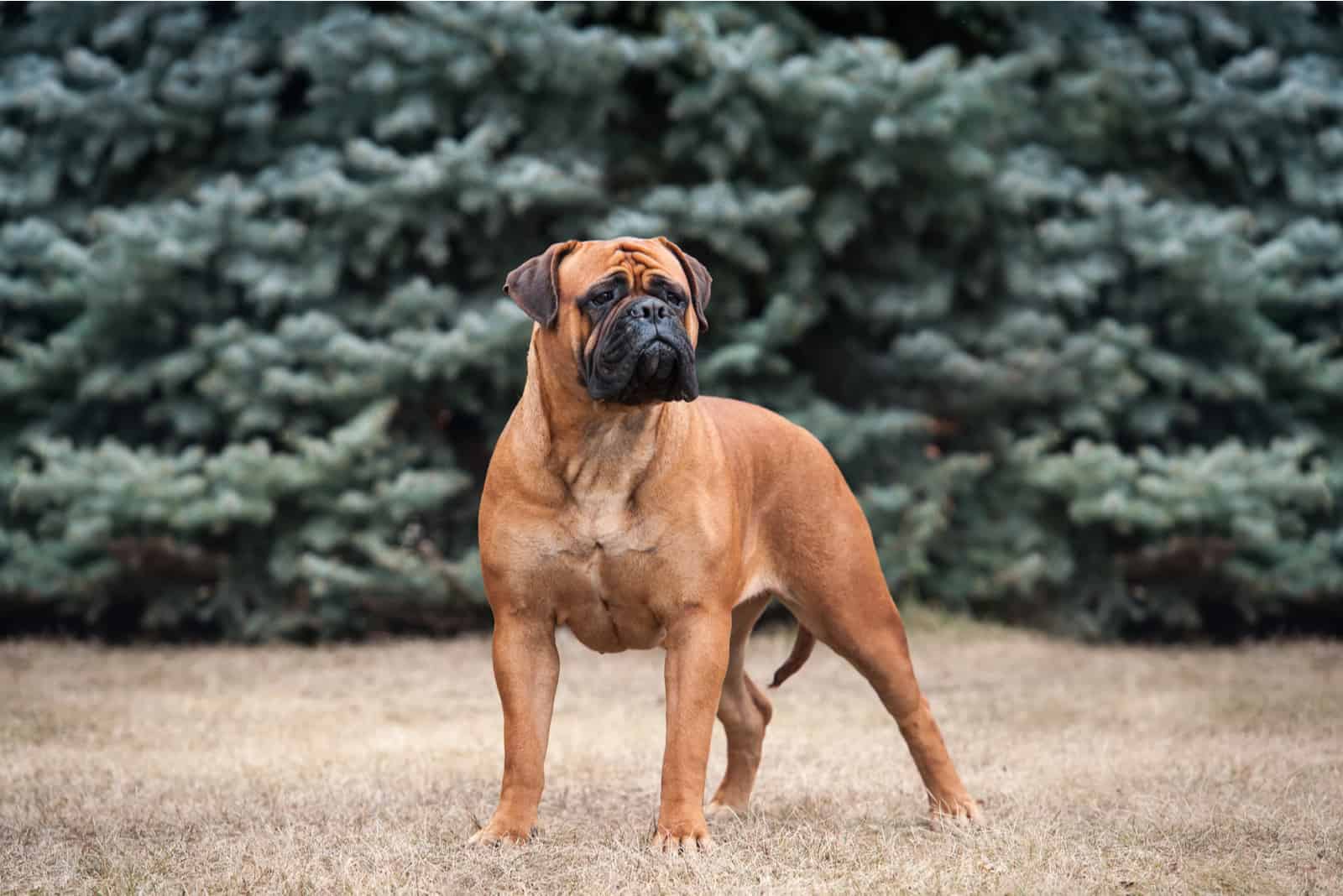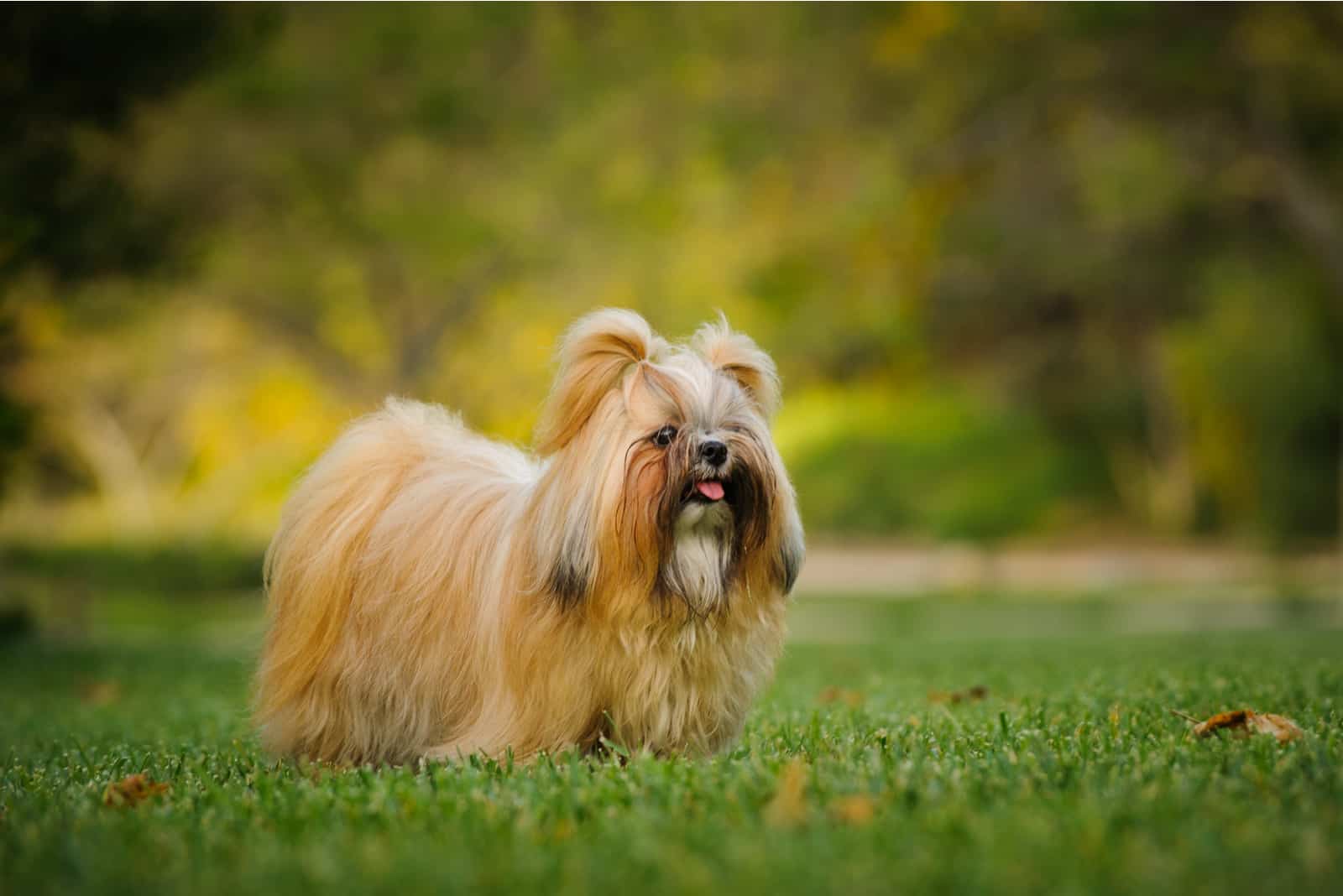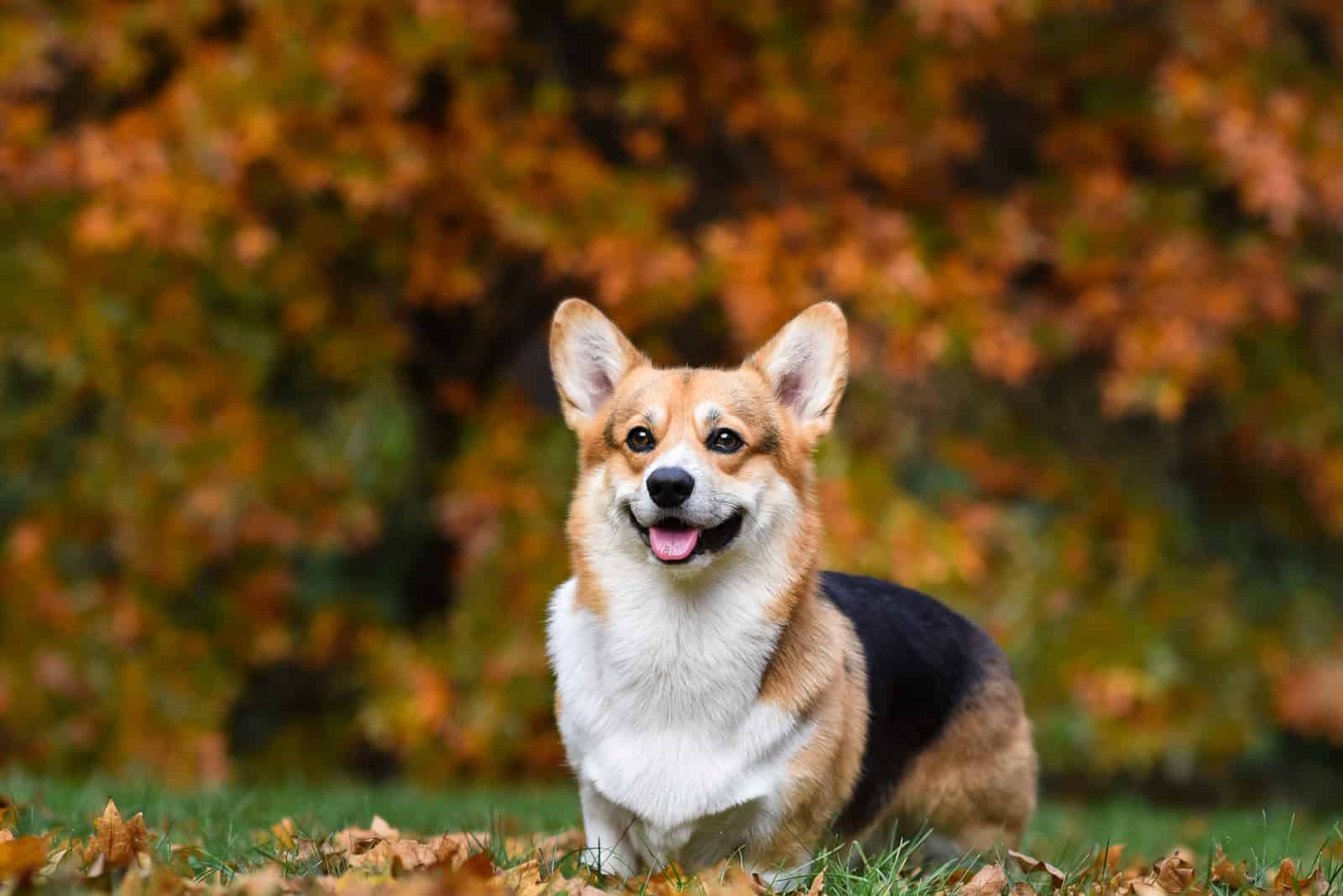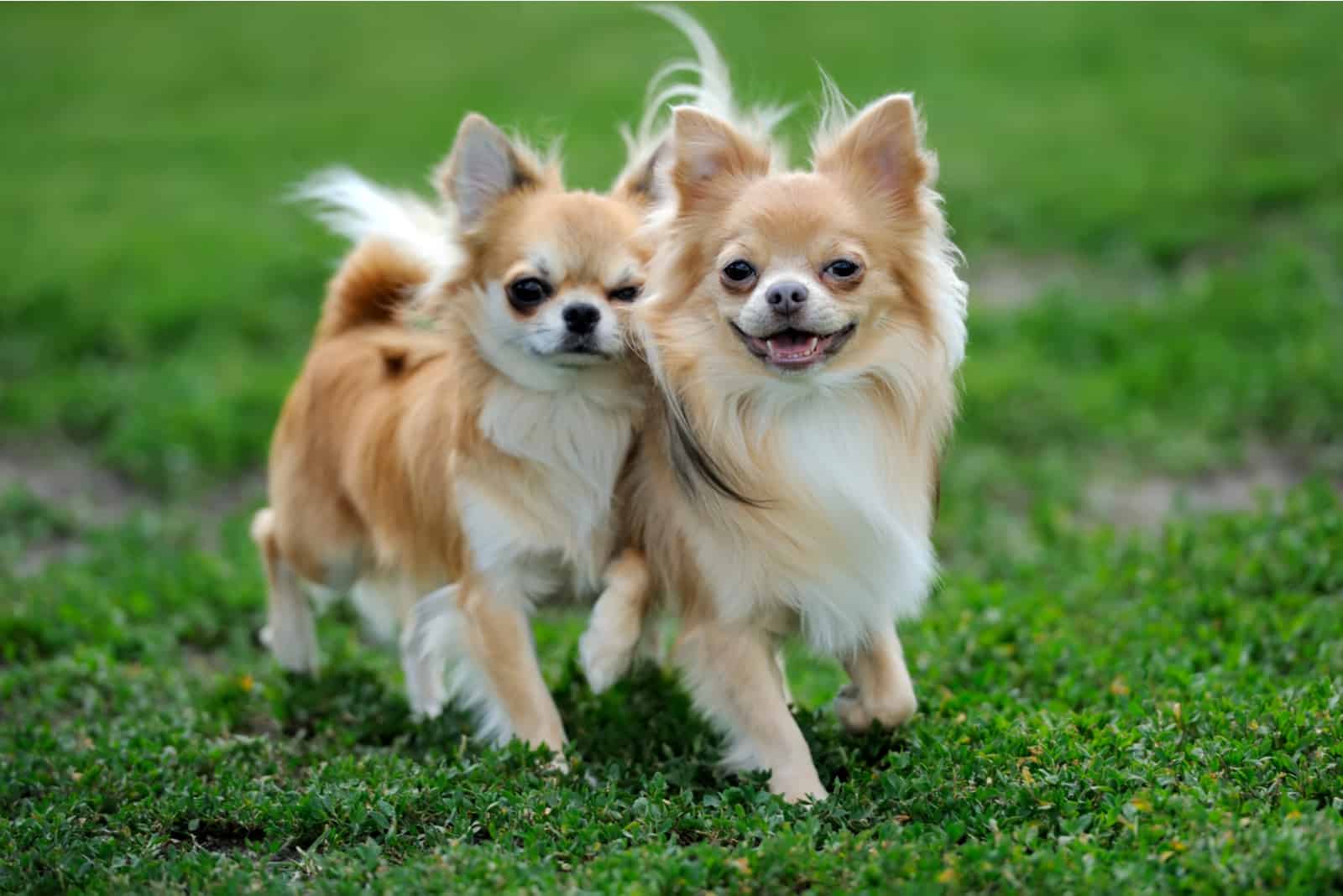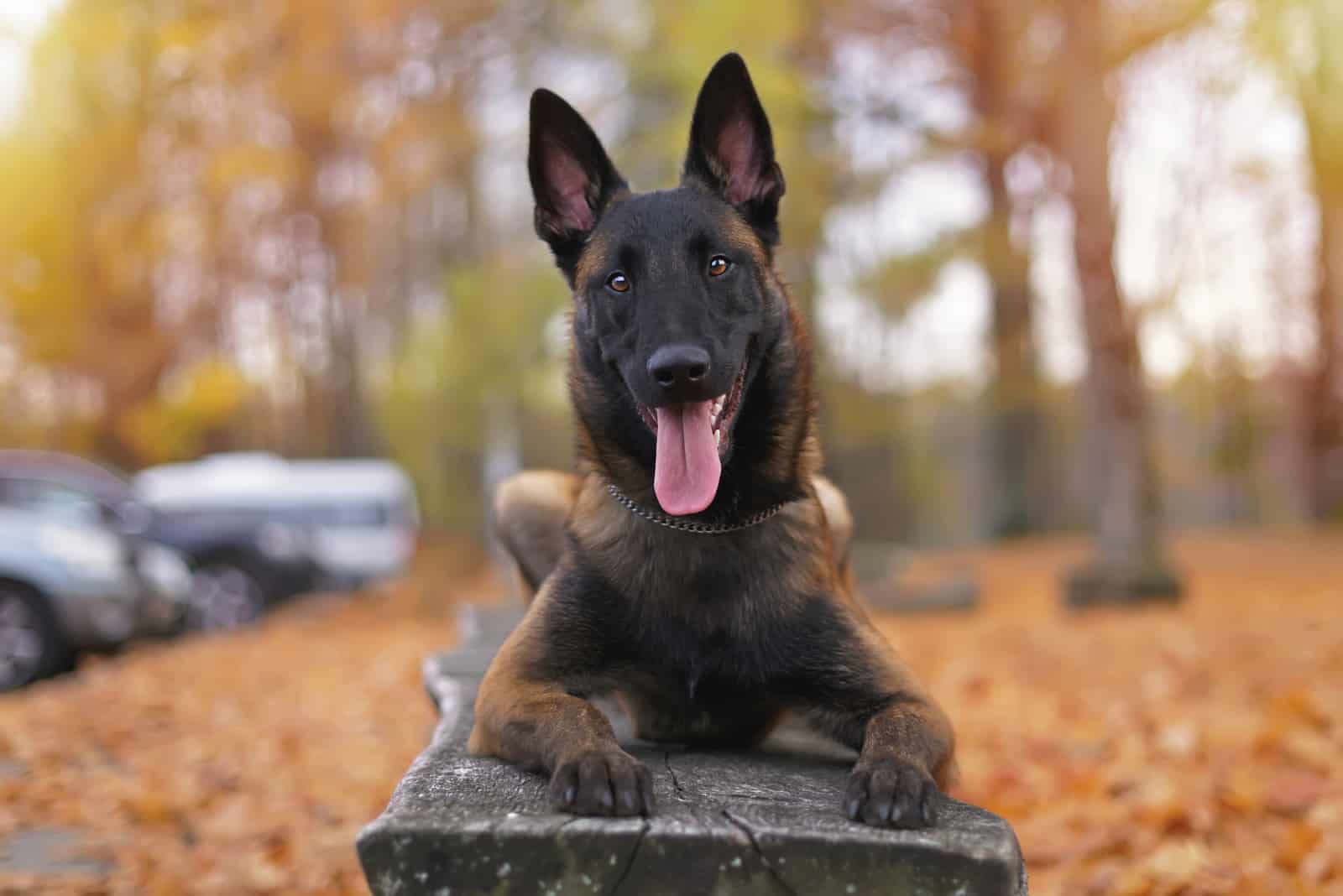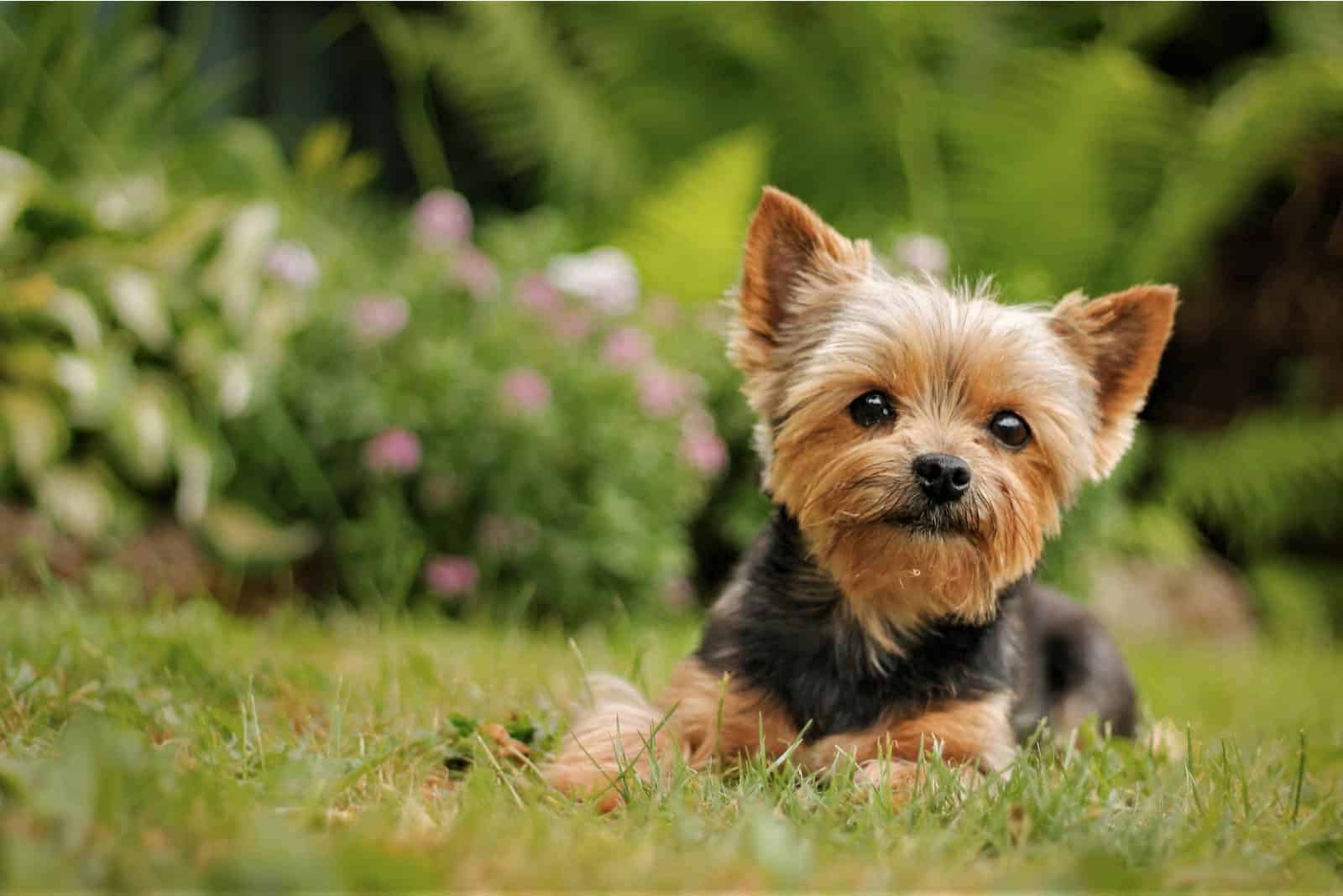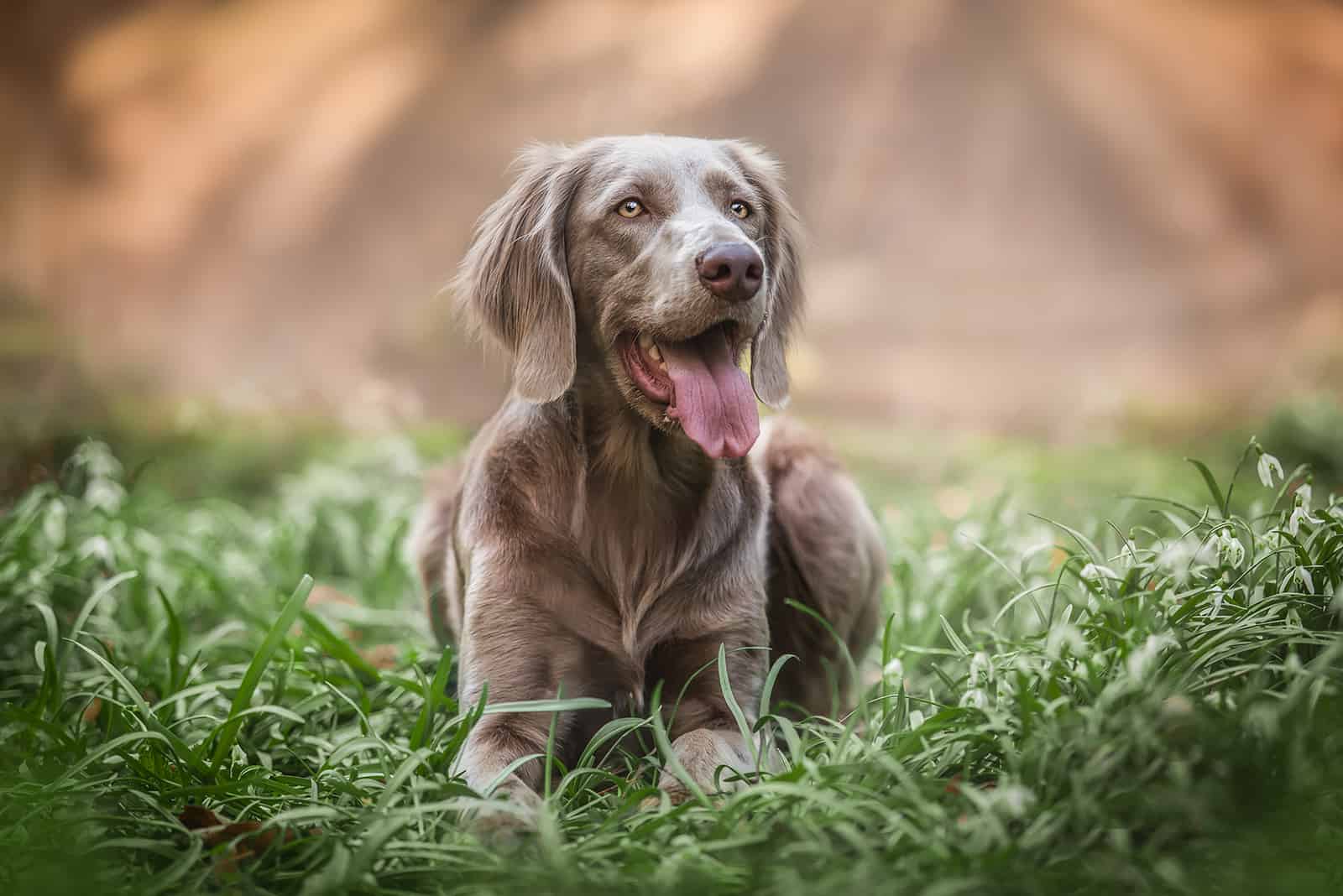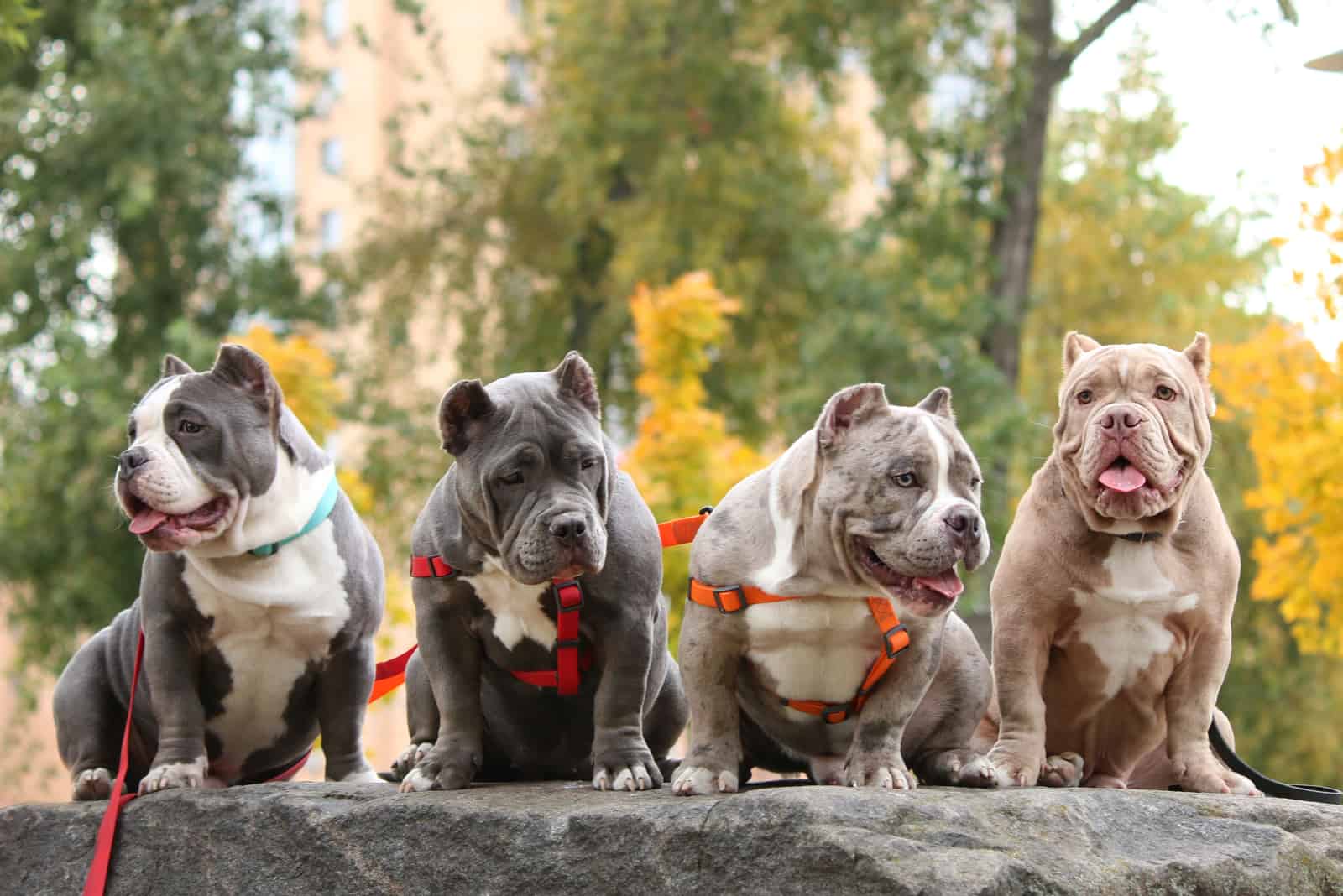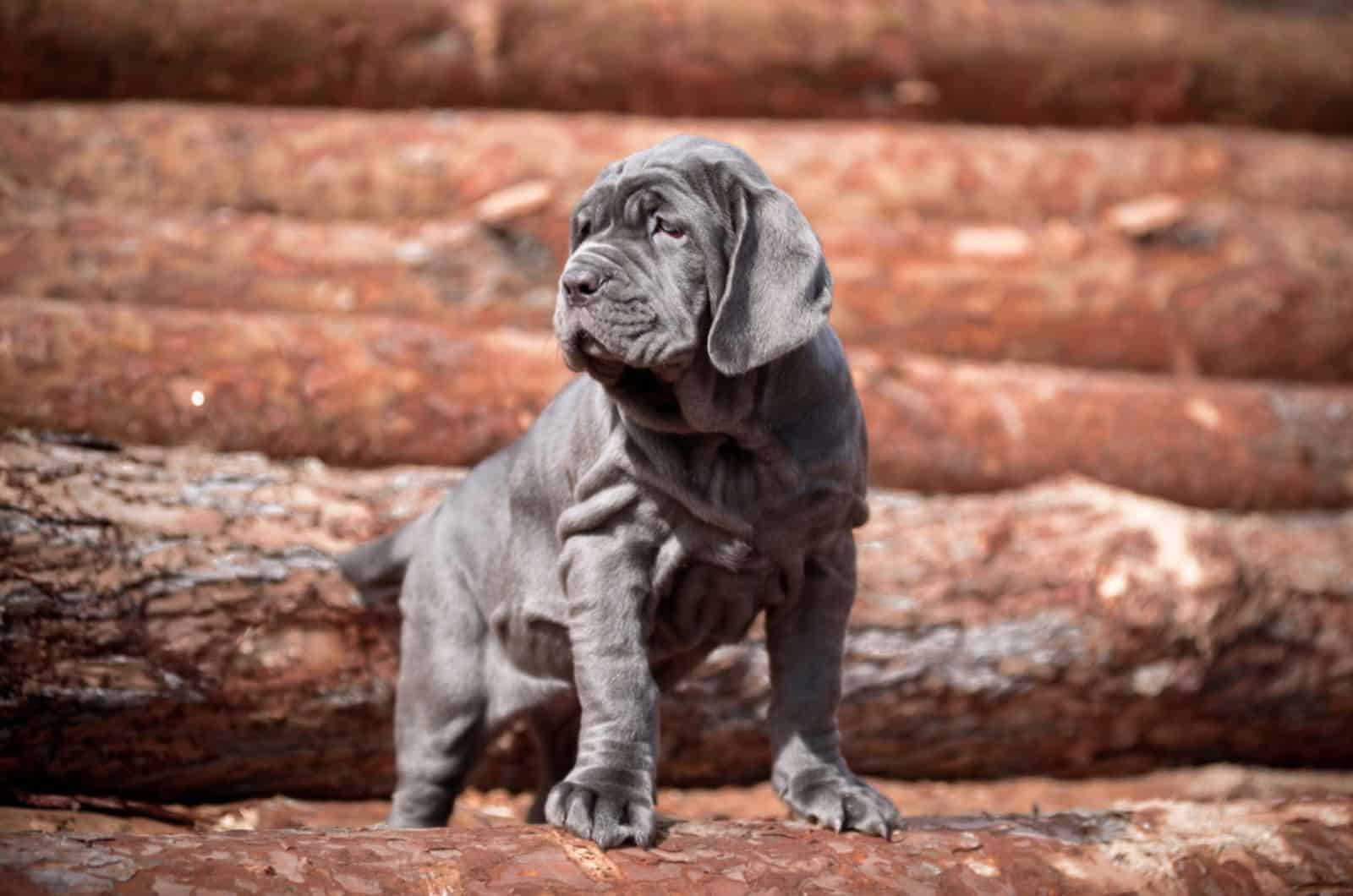Since the time of ancient Rome, the Neapolitan Mastiff has served as a fearsome guardian with its enormous size and intimidating demeanor.
The heavily wrinkled Mastino is wary of strangers yet kind, calm, and loving with family. A Mastino is unlike anything you’ve ever seen, and the breed’s underlying grandeur can only be described as majestic.
However, if you are thinking of getting one of these giants for your family, one of the first things that will come to your mind is probably the Neapolitan Mastiff price. Typically, bigger dogs have bigger costs, as they will require more space and more food.
But is that really the case with this breed?
To help you figure out just how much a Neapolitan Mastiff will cost you, we’ve written this article which contains a full breakdown of all the expenses related to owning this dog.
Everything from initial puppy price to first-year costs and annual costs is covered here, so it should give you a pretty good idea of the budget that you should set aside.
Neapolitan Mastiff Price
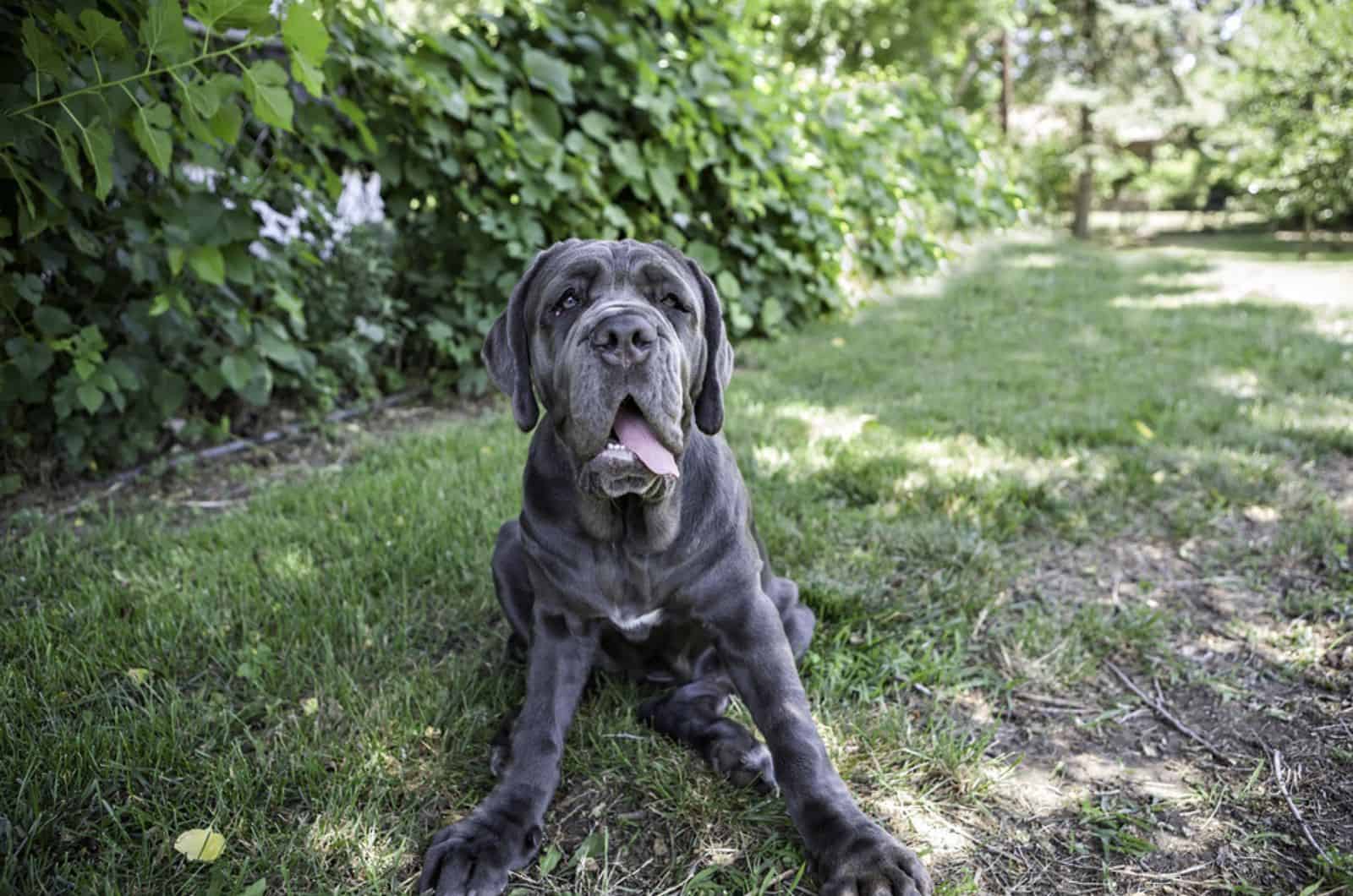

The cost of any dog is impacted by a number of different factors, so it’s never easy to accurately predict it.
However, we can still provide a good estimate and that’s exactly what we want to do with this article.
Taking into account where you got the Neapolitan Mastiff puppy from, as well as its needs when it comes to feeding, training, socialization, exercise, etc. we can get a range of expenses that you should expect to encounter.
Typically, the cost of a Neapolitan Mastiff puppy ranges from $2,500 to $5,500, and it averages around $3,500. Expenses don’t stop with just buying the puppy, though.
Expenses of owning a Mastino total around $4,500 to $10,500 in the first year of its life, and after that, they should be between $1,800 and $2,200 per year.
Since the average lifespan of this breed is seven to nine years, the entire lifetime costs should amount to somewhere between $19,800 and $30,100.
Like a lot of Mastiff breeds, Neos are great family pets, but are they worth that much money?
Let’s take a look at these charts that list all of the expenses so that you can have a better idea of what is driving that cost up.
| Item | First-Year Cost |
|---|---|
| Puppy | $2,500 to $5,500 |
| Food and water bowls | $10 to $40 |
| Dog collars and leashes | $20 to $70 |
| ID tag | $5 to $20 |
| Dog bed | $30 to $110 |
| Dog crate | $50 to $165 |
| Dog poop bags | $20 to $120 |
| Toys | $50 to $150 |
| Grooming essentials | $20 to $120 |
| Training sessions | $700 to $1,000 |
| Veterinary costs | $450 to $850 |
| Spay/Neuter | $50 to $500 |
| Health insurance | $350 to $800 |
| License | $10 to $20 |
| Microchipping | $25 to $50 |
| Puppy food and treats | $450 to $1,100 |
| Total | $4,690 to $10,615 |
| Item | Recurring Annual Cost |
|---|---|
| Grooming essentials | $25 to $140 |
| Veterinary costs | $500 to $1,000 |
| Dog food and treats | $350 to $1,500 |
| Total yearly cost | $875 to $2,640 |
About The Neapolitan Mastiff Dog Breed
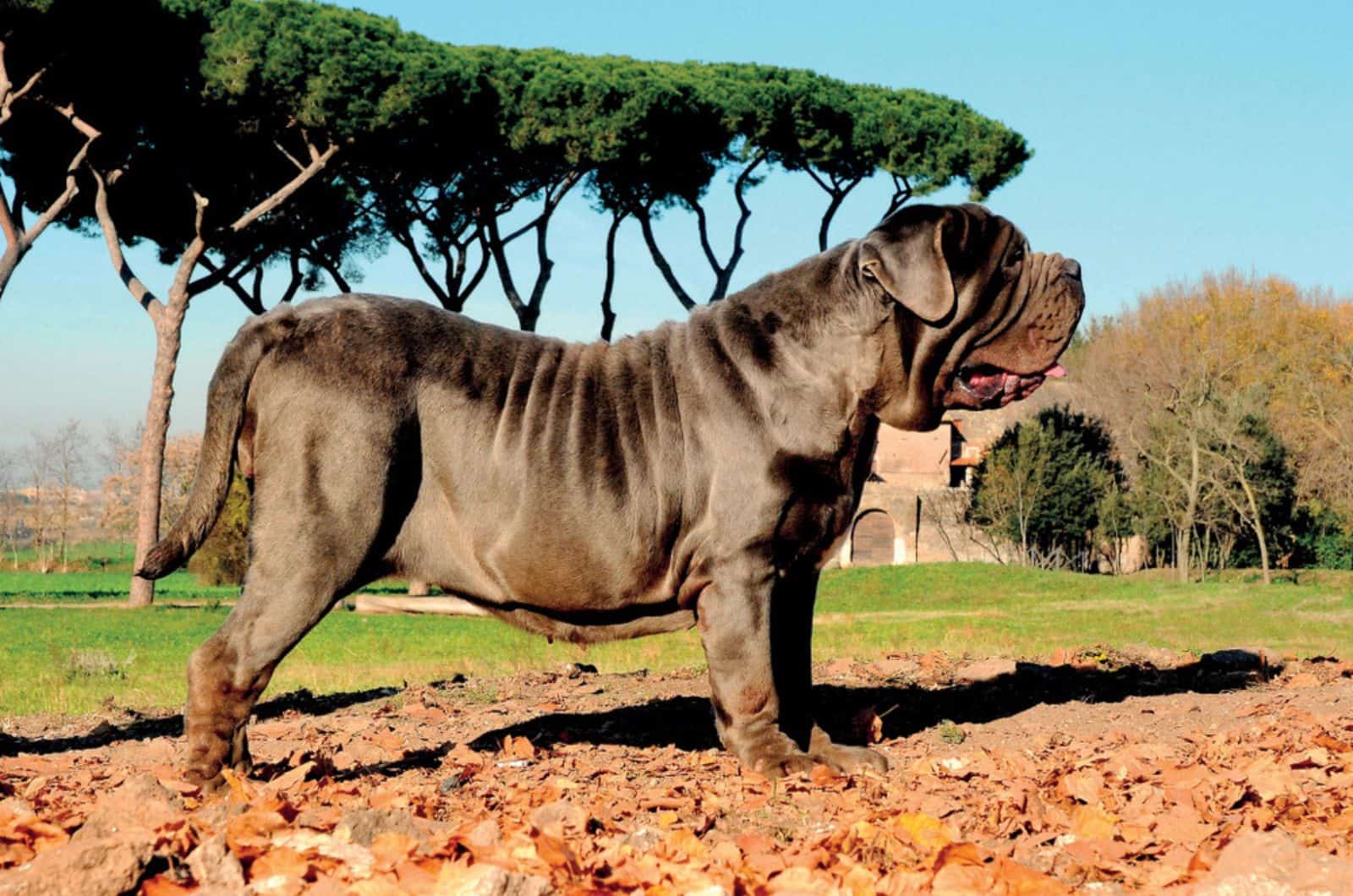

Before we start explaining the costs of owning a Neo in more detail, let us first give you a brief overview of this breed in general.
Even though it is slowly becoming more popular and less feared in recent times, there are still a lot of things associated with this breed that people don’t know about.
Breed History
Modern Neapolitan Mastiffs, as their name suggests, are thought to have originated in Naples, Italy. Going further back in history, they are directly descended from the Molossus, the prehistoric Middle Eastern war dogs.
It is mostly a working or utility breed with many different uses. In addition to being used as a herding dog, flock protector, cattle drover, cart dog, large game hunting dog, and personal protection dog, it has predominantly been a farm helper and a guard dog.
The AKC first recognized the Neapolitan Mastiff in 2004.
Appearance
The Neapolitan Mastiff may have the most menacing aspect of any dog, with its enormous size rendered even more intimidating by its abundance of loose skin and the trademark dewlaps. Some claim this appearance was purposely designed to frighten off invaders without the dog having to act.
When compelled to act, however, the Neo can act quickly and unexpectedly. Almost any invader can be knocked down by its enormous, strong physique. Its giant head may hold or crush an opponent with the help of its short, strong jaws and big fangs.
The thick, dangling skin adds to the intimidating appearance of bulk and threatening attitude.
Neapolitan Mastiff Temperament
Throughout its entire history, the Neapolitan Mastiff was raised to protect its family. As a result, it is very protective of and committed to its family, vigilant and wary of strangers, and understanding of friends.
Even if it is kind to kids, mishaps can happen because of its size. It might not get along with other dogs, especially ones who have a dominant personality. It should be carefully socialized, particularly if it shows early signs of aggression, from a young age due to its large size.
What Is The Price Of A Neapolitan Mastiff Puppy?
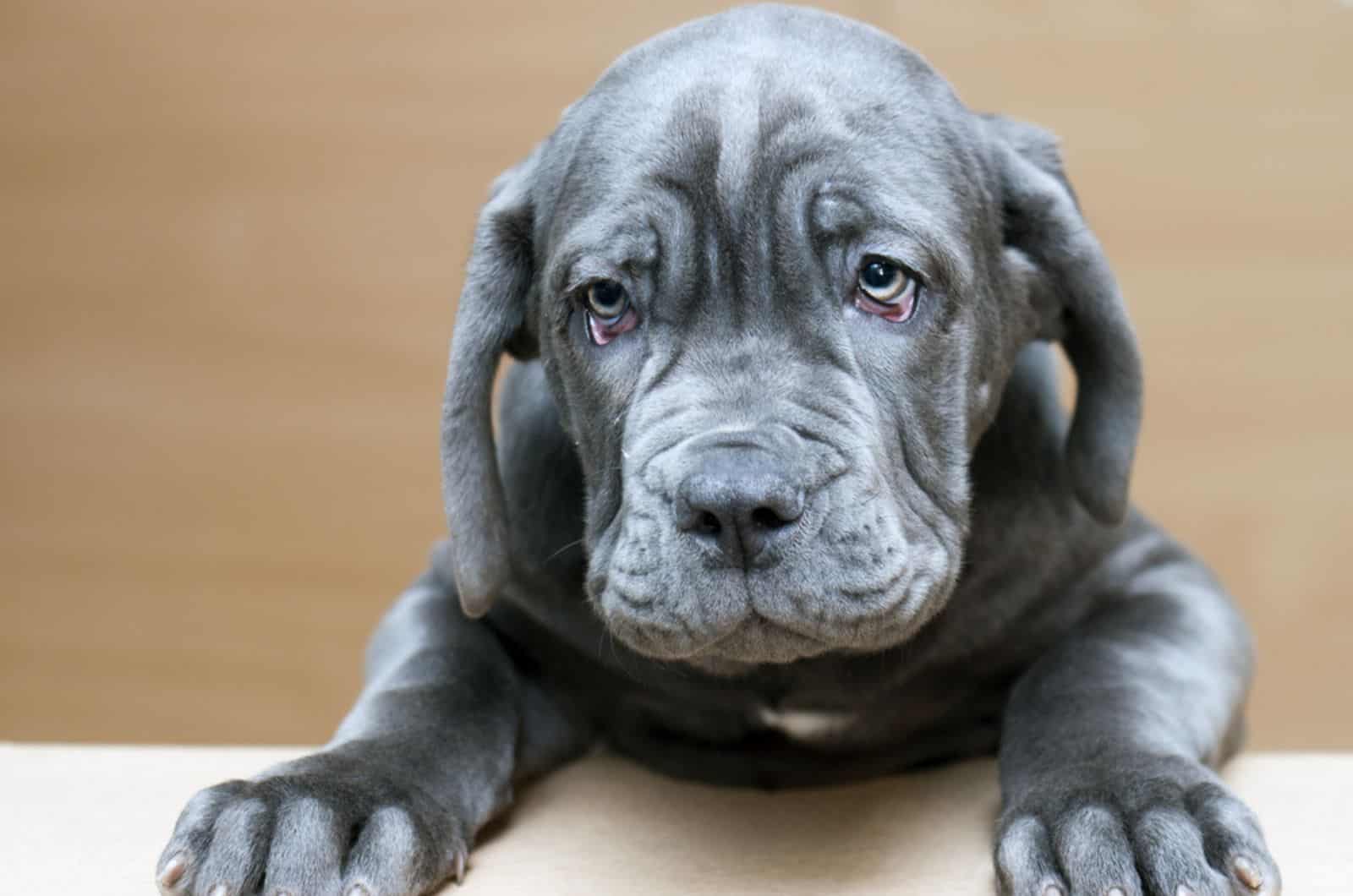

After listing all the potential expenses associated with buying and owning a Neapolitan Mastiff, it’s time to get into a little more detail about it.
Let’s start with the first expense, and the biggest one of all, the actual price of the Mastino puppy. Comparing these pups to other similar breeds makes us realize that they are not that much more expensive than most. For example, the price of a Neapolitan Mastiff puppy is in the same ballpark as the price of a Bullmastiff.
There are many factors that determine how much you’re going to pay for a puppy, and knowing exactly what they are can help you get a good quality dog for your money.
Breeders Vs. Adoptions
If you’re going to a specialized breeder to get your Neapolitan Mastiff puppy, it will probably cost you in the range of $2,500 to $5,500, depending on the reputation of the breeder. This is still slightly less expensive than its cousin, the Tibetan Mastiff.
If you choose to go this route, make sure that you do some research beforehand and get yourself acquainted with the breeder’s reputation by reading up about them online. Look for testimonials and reviews from other people who have purchased a puppy from them and learn about their experiences.
Even if you have to pay a bit more for the puppy, it can be worth it in the long run, if you know that you are getting a quality dog from a breeding facility that does great work.
On the other hand, you can also choose to adopt a Neapolitan Mastiff puppy from a dog rescue or a dog shelter. Of course, this is a much cheaper option, but it has its drawbacks.
First of all, you can’t really know which shelter or rescue has a Mastino, since they don’t breed their dogs regularly and selectively like breeding establishments do. Finding a shelter with an available Mastino is largely dependent on luck.
And secondly, even if you manage to find a Mastiff for yourself, you don’t really know anything about its background. Shelters and rescues don’t usually have access to their dogs’ entire medical history or specific info about their bloodline.
You’re very limited in choice when adopting a Neapolitan Mastiff from one of these organizations, but the flip side of the coin is that you can get a dog for under $500.
Bloodline And Pedigree
The cost will be significantly greater if the parents are purebred, show-quality dogs from a reputable breeder. Additionally, compared to other breeders, these ones frequently spend more money on the care of their breeding dogs and puppies.
Breeders occasionally join kennel clubs, the most well-known of which is the American Kennel Club (AKC). Additionally, they can register their breeding canines and puppies, which will raise their costs.
Health Records
Breeders who are serious about their business will have their breeding dogs and/or puppies examined and tested for various illnesses.
In addition, some of them will take their puppies to the doctor for a checkup, deworming, shots, and/or microchipping before selling them. This increases the cost while lowering the possibility of receiving an ill dog.
Training And Socialization
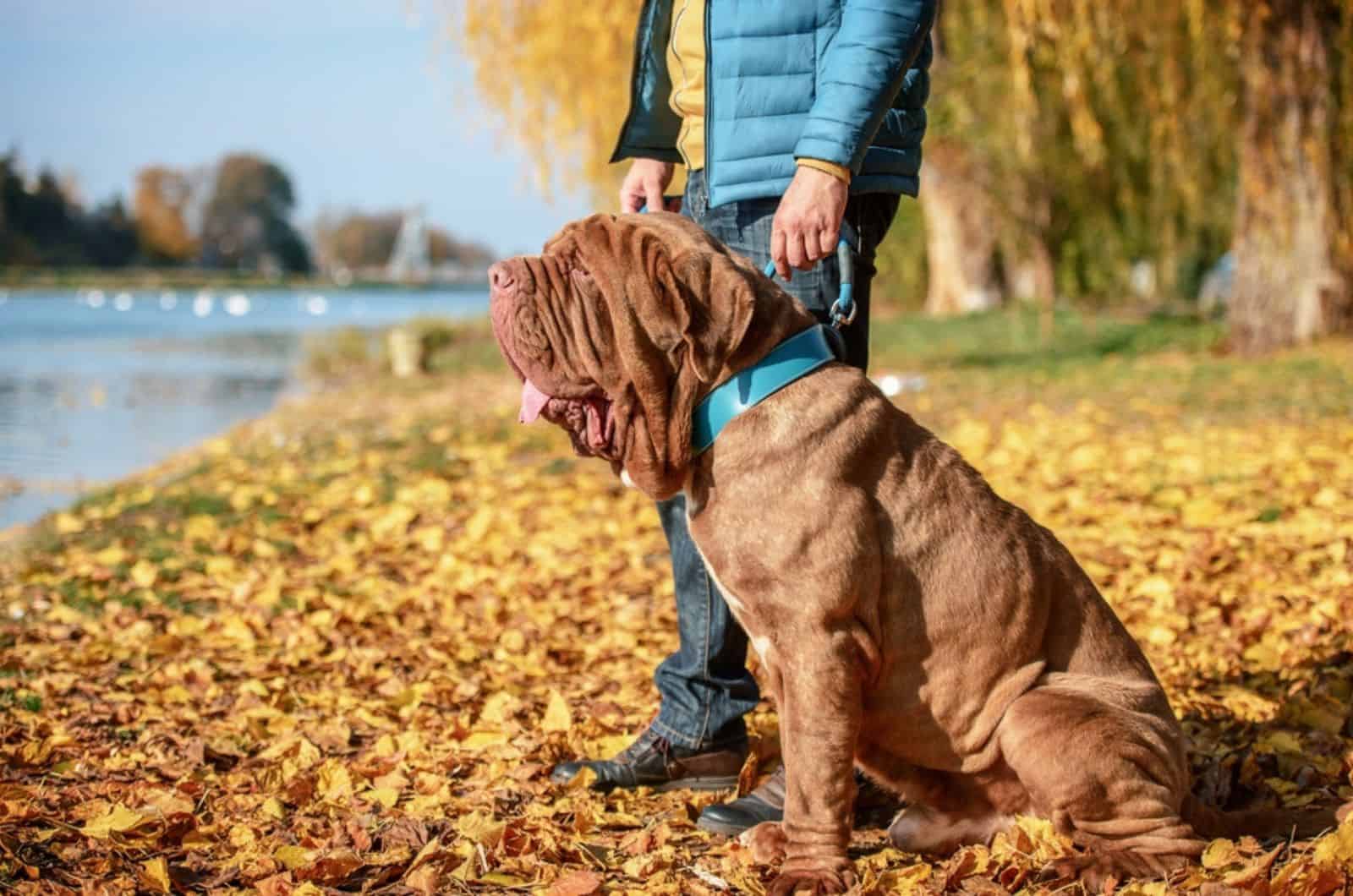

Some breeders only sell their canines after they have been through the process of dog training and socialization.
It will raise the initial cost of the puppy but result in savings because you most likely won’t need to spend more money on training and it also increases the likelihood that you will obtain a well-behaved dog, which is arguably more important in a watchdog then it would be in a different breed.
Coat Color
Neapolitan Mastiffs come in a range of different colors, much like their distant cousins, the Bullmastiffs and the Tibetan Mastiffs..
However, the trends in coat color popularity and desirability can change quickly, and even if they don’t, it’s still a matter of personal taste.
Of course, there are some preferences that are more universal than others. Any breed has preferred colors that are occasionally more well-liked than others. Puppies cost more as people get more interested in a particular coat color because rising demand drives up market prices.
Additionally, kennel clubs only permit certain colors and color combinations on purebred dogs, so those tend to be a bit more expensive.
And, last but not least, puppies with rare color combos can be considered unique or special and therefore command a higher price.
Age
Prices for dogs tend to drop as they age because most people prefer to get them as puppies. For instance, a one-year-old puppy often costs significantly less than a 6-week-old puppy.
However, while the lower price might be a tempting proposal, there are some things that you sacrifice when you buy an older puppy.
You miss those crucial formative months in which the dog forms its strongest bonds with those around them, and you miss the chance to do some training sessions when they are most receptive to it.
Your Location
Prices for puppies will be impacted by local supply and demand. For instance, people who live in small apartments in urban regions tend to prefer little dogs, for obvious reasons.
In colder climates, dogs with thick fur or double coats might be preferred, whereas they won’t be as popular in warmer regions.
To give you a simple example, the Neapolitan Mastiff will probably be more expensive than a North American Mastiff if you live in the United States or Canada.
Those factors play a big role in shaping the prices of puppies at your local breeders, as they will naturally look to attach higher prices to the breeds that are more popular in the area.
It’s definitely worth shopping around and comparing prices from different breeders in a wider region, but when purchasing from a more distant facility, you need to account for the cost of transport.
Furthermore, buying a puppy without first seeing it in person can be risky, so you might need to travel a couple of times.
Neapolitan Mastiff Puppy First-Year Costs
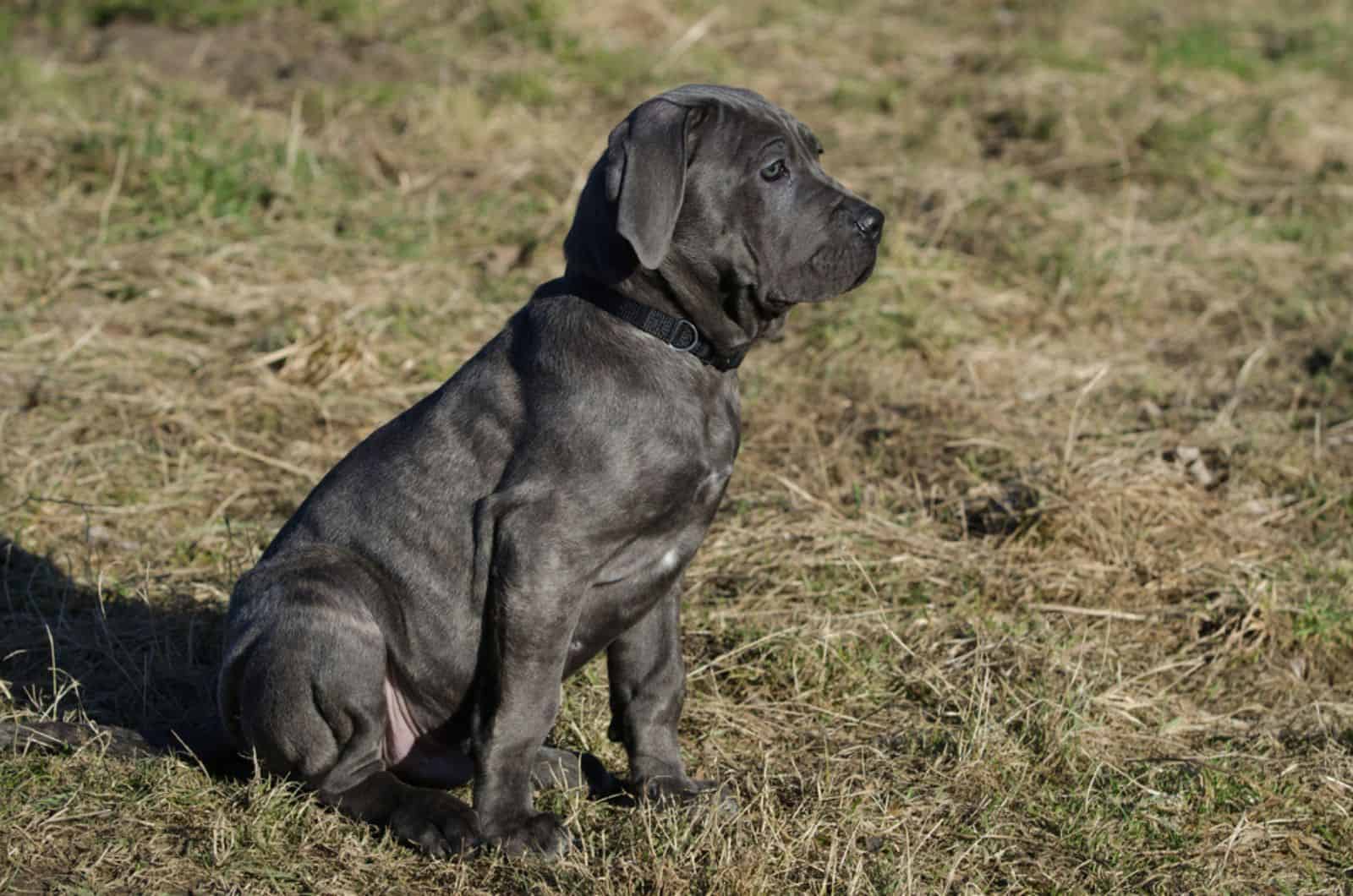

If you look at the price ranges in the charts at the start of this article, you will see that the expenses accrued during the first year of owning a dog can be up to four times larger than those in subsequent years.
Even if we take out the initial price of the puppy from the equation, the difference is still massive.
This is because you buy a lot of one-time purchases in this period. Whether it’s supplies or toys, a lot of the stuff that you purchase in this period will serve its purpose for the duration of the dog’s life, so you won’t have to buy it again.
Additionally, there are also certain medical procedures and vaccinations that only need to be performed once, and generally, the best time for them is during the first twelve months.
With all that in mind, it’s clear that the first year is the most expensive one, but the good news is that it gets easier on your wallet as time goes on. But let’s dig into those early expenses with a bit more detail and see what exactly they are about.
Supplies
There are a few items you should have on hand as you welcome your puppy or adult dog into your home to make life much simpler for both of you! To offer you the most realistic idea of the prices involved, we did a lot of research and crunched the numbers for you.
For the first year, a large dog like a Neapolitan Mastiff will likely cost between $165 and $555 in supplies, and that includes stuff like a dog bed and crate, training collars and leashes, food and water bowls, toys, as well as an ID tag.
This basically makes up a dog owner’s starter kit and you can’t really drop anything from this list.
You can, of course, seek out cheaper alternatives to some of the items and save money that way. With countless online platforms such as Amazon, PetSmart, etc. you are bound to find a lot of options, some of which might be cheaper.
In addition to the items we’ve listed here, there can be other supplies that you can buy for your dog that might not be must-haves. For example, you might want to buy a muzzle, a harness, or a dog car seat. Those were not included in the price predictions because not every dog owner will want them.
Grooming
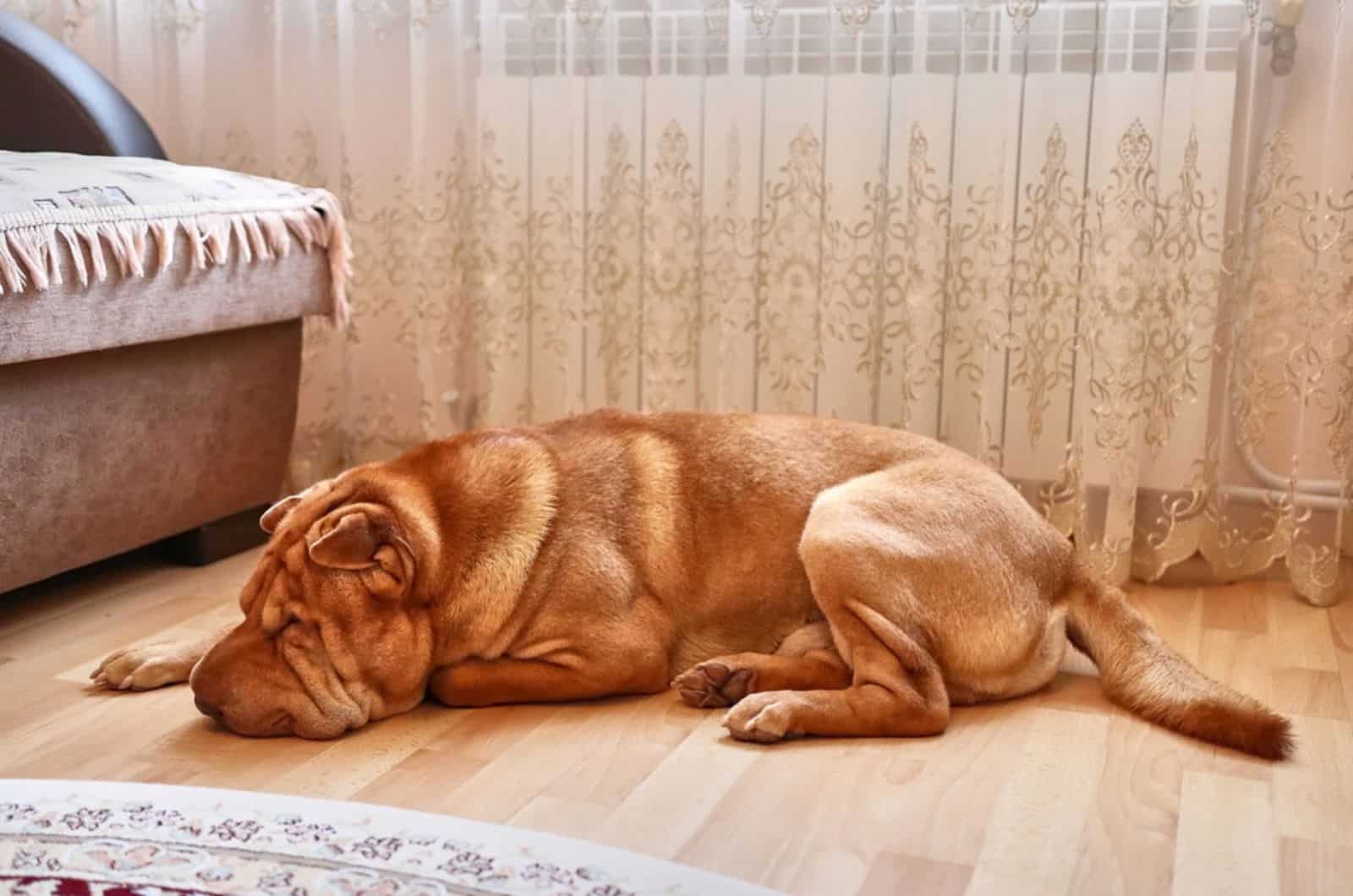

Generally speaking, Neapolitan Mastiffs are often not extremely high maintenance and can be groomed by their owner at home. You will just need to buy some grooming essentials to be able to do the job properly.
These essentials typically include dog shampoo, a coat brush, some nail clippers, and a toothbrushing kit. Depending on the brand and quality of these items, the whole set shouldn’t cost you more than $120, but you could probably find it for around $20 if you look around enough.
However, if you choose to have your Mastino groomed professionally, then you should anticipate up to 6 appointments per year, with each visit costing between $75 and $100.
The cost of dog grooming services varies based on the size, state of the dog’s coat, age, overall health, and the treatments that are requested.
A bath and shampoo are typically included in professional grooming, as well as, if necessary, hair removal and brushing, cleaning of the ears, teeth, and eyes, as well as nail cutting.
Nail cutting can be especially challenging if the dog is scared, so you might want to learn how to sedate your dog for the procedure.
Training And Socialization
Neapolitan Mastiff training is advised and should cost between $700 and $1,000. Training should consist of three to five private classes for potty training and positive leadership, as well as five one-hour group training sessions for jumping and basic obedience.
Training is absolutely crucial during the Neapolitan Mastiff’s first year of life, as this is the period in which they are most receptive to learning new skills, and they are generally more malleable.
After twelve months of age, their personality and temperament are largely formed and you will have a hard time making them ditch any bad habits they might have acquired by that point.
The old saying that goes “you can’t teach an old dog new tricks” has its merit, and even though a twelve-month-old Neapolitan Mastiff isn’t exactly an old dog, it is certainly past its optimal trainability period.
Now, you can either choose to hire a professional dog trainer or do the lessons yourself. Please note, if you pick the latter, you need to make sure that you have the necessary knowledge, time, and patience, as these dogs need a routine that they can rely on in order to learn obedience.
Vet Expenses
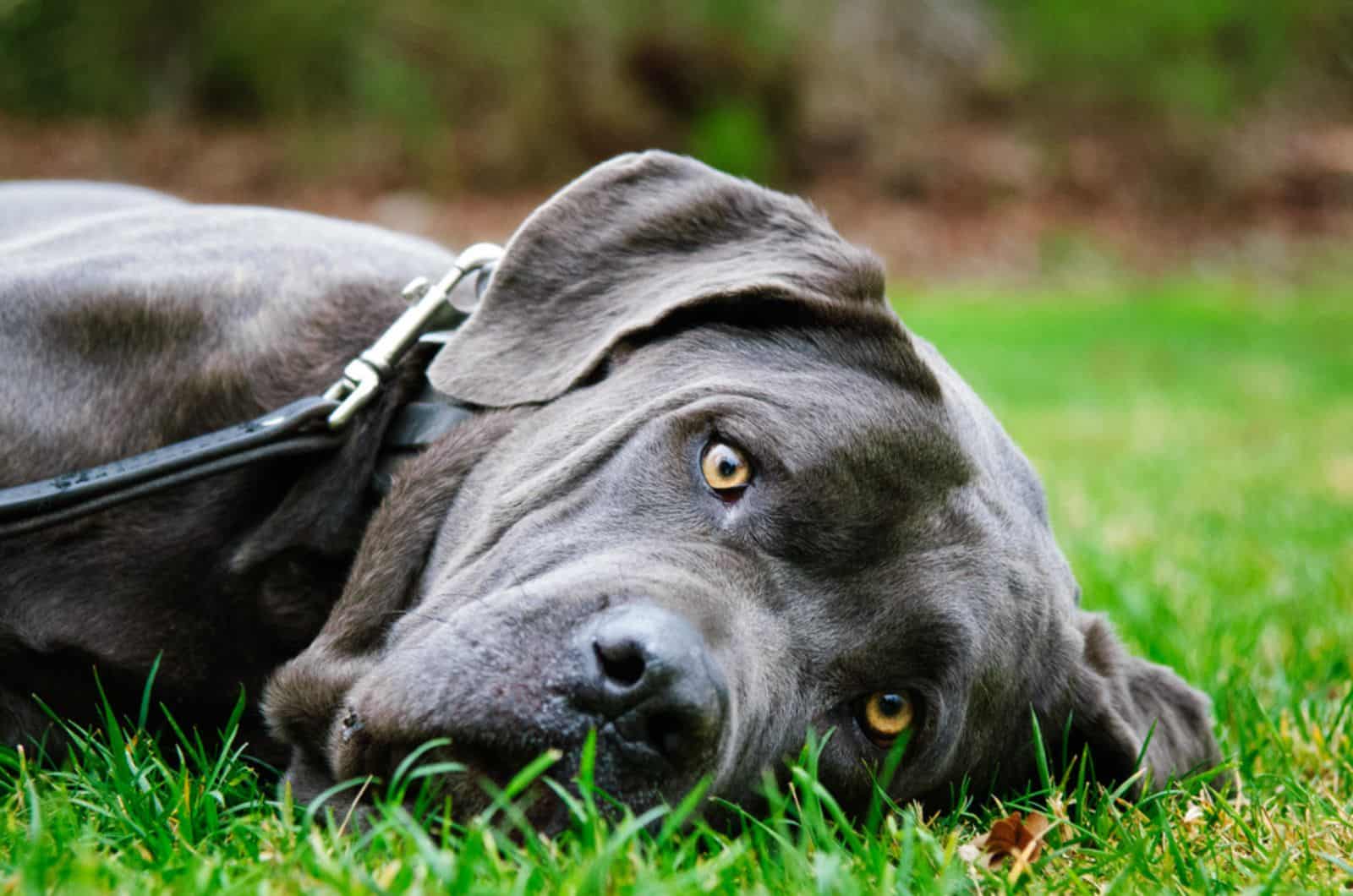

As you can see from the chart, the first year’s veterinary expenses will set you back around $450 to $850, and that doesn’t include the cost of spaying or neutering.
Since the first twelve months are so crucial in a puppy’s development, that’s also the period in which most of the preventive medical procedures are performed. You want to make sure that you set your puppy up for healthy adulthood.
In the first year of a puppy’s life, experts advise at least three visits to the veterinarian, with the first one occurring at around two to three weeks of age. Each session should cost between $65 and $170.
Physical examinations, fecal examinations, vaccinations, heartworm treatment, and flea prevention are all covered during these appointments.
Aside from those three trips that include all the basic vaccinations, you should also consider some additional inoculations and procedures, which your Mastino might need, depending on its lifestyle. Let’s take a look at some of them.
Influenza
If your Neapolitan Mastiff is boarded or kept in a kennel for an extended amount of time, or if the daycare or kennels mandate it because of sporadic influenza (aka. canine flu) outbreaks, it should get an influenza vaccination. These will cost you between $70 and $90 for two shots.
Leptospirosis
If your dog is exposed to nature and wildlife for long stretches of time, then you should definitely consider inoculating it against leptospirosis. For example, if your Mastino accompanies you on hikes or camping expeditions, there is a certain risk that it might contract it, so have that in mind.
The average price is around $15 to $25.
Lyme
Speaking of hiking and camping, ticks are another issue that might arise from such a lifestyle. Luckily, Neapolitan Mastiffs have relatively short fur, so ticks aren’t that difficult to notice, but why should you even risk when there is an easy prevention method?
Lyme vaccines are usually around $40 to $80 for a couple of doses.
Gastropexy
Larger dogs, such as Neapolitan Mastiffs, are advised to undergo a gastropexy surgery since this helps lower the chance of Gastric Dilatation and Volvulus (GDV) later on and prevents complications. Such treatment typically costs between $200 and $400.
GDV, a potentially fatal ailment that requires surgery to treat, is when a dog’s stomach twists on itself.
Spaying/Neutering
Spaying and neutering is always a hotly contested topic among dog owners and veterinarians alike, but the final decision falls to you as the owner.
If you choose to spay your female Neapolitan Mastiff, or neuter your male, probably the best time to do it is between the ages of four and nine months. The procedure varies in cost, depending on where you do it, but it generally falls in the $50 to $500 range.
Spaying females is usually more expensive than neutering males, because it’s a more complex and sensitive operation.
Related reading: The Truth: How Will My Female Dog’s Behavior Change After Spaying?
Dog Food
Due to their size, Neapolitan Mastiffs can consume a lot of food. Given that puppies will typically eat 450 pounds of dry food throughout their first year, we predict that the average cost of feeding a Neapolitan Mastiff puppy will be between $350 and $650, not including treats.
Bear in mind that this range, even though it offers a lot of wiggle room, can still be pretty off. The reason for this is that there is a massive discrepancy in price between a lot of the dog food brands.
Premium brands are multiple times more expensive than some of the generic ones that you can find on the shelves at Walmart, so it can be really tough to predict exactly how much you will spend on feeding your Mastino.
Price isn’t always a definite indicator of quality, but it’s usually a decent guide. That being said, make sure to avoid some of the low-price, low-quality brands out on the market.
Just know that, if you insist on buying the premium stuff, you should be prepared to spend a lot more, even during the first twelve months.
Raw And Homemade Dog Food
Feeding your Mastino only commercially available dog food isn’t the only way to go. There are some alternatives, and two of the most popular ones are the raw puppy diet and the homemade dog food diet.
They are becoming increasingly popular in recent years, and the main reason behind that is that they simply give the pet owner more insight into and control over what their dog is eating.
You get to choose the ingredients and make the meals yourself — like this delicious boiled chicken — so you don’t have to rely on the dog food manufacturer to create a particular food that is perfect for your Neapolitan Mastiff.
Naturally, these types of diets will significantly change the outlook of your expenses, as you won’t be able to simply multiply the cost of a bag of kibble by the number of bags that your dog consumes every year.
Raw and homemade diets require a little more effort and more careful planning, but it can be worth it in the sense that it improves your dog’s health and fitness. Of course, you should always consult with your vet before putting your puppy on a diet like this.
Neapolitan Mastiff Recurring Annual Costs
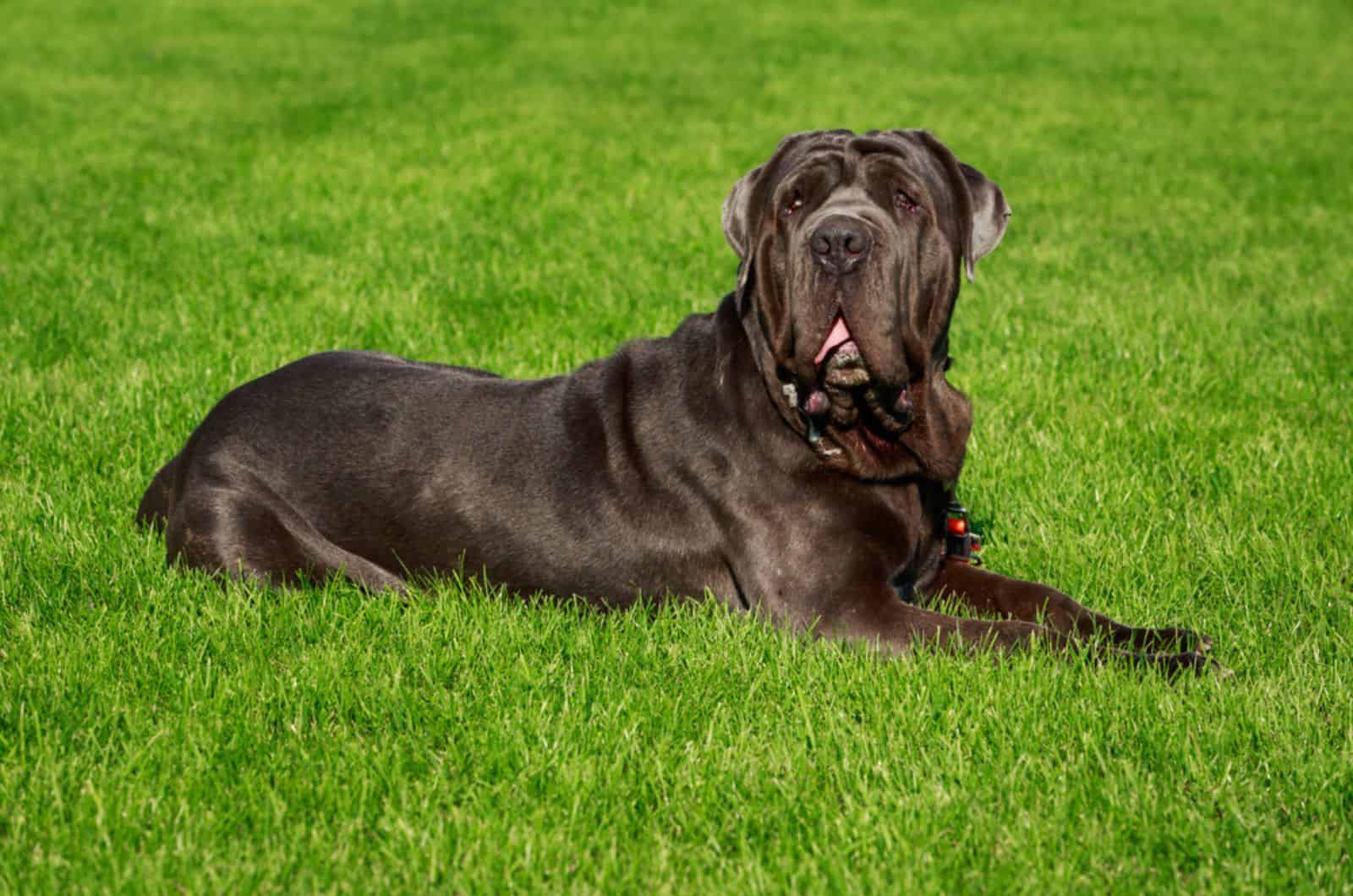

Okay, now let’s imagine that your Mastino just finished blowing out the candles on its first birthday cake. All the first-year expenses that you worried about so much have been covered and you can finally breathe a sigh of relief.
Except you can’t. The first year of any dog’s life is usually the most expensive one, but that doesn’t mean that the remaining ones are completely free. You still need to invest a certain amount of money to provide a healthy, happy, and comfortable life for your Neapolitan Mastiff.
As you can see from the second chart above, we estimate that the yearly expenses should now be between $875 and $2,640. Comparing it to the previous year, you can notice a significant drop and, when you spread it out across twelve months, it doesn’t seem too bad at all.
But let’s get into a little more detail about each of those three categories of expenses so that we can get a clearer picture.
Grooming
Grooming is the one category that doesn’t really change much in regards to cost, going from the first year to the subsequent years of a Neapolitan Mastiff’s life.
The choice is still yours, whether you want to groom the pooch yourself or take it to a professional groomer. If you choose to go with a pro, then it’s highly likely that the pricing will remain the same as it was when the Mastino was just a puppy, which is about $75 to $100 per session.
If you choose to do it alone, then you will probably need some advice. Even though Neos don’t shed that much, their hair can still get loose around the house. Here are some grooming tips and tricks that will help with that.
Vet Expenses
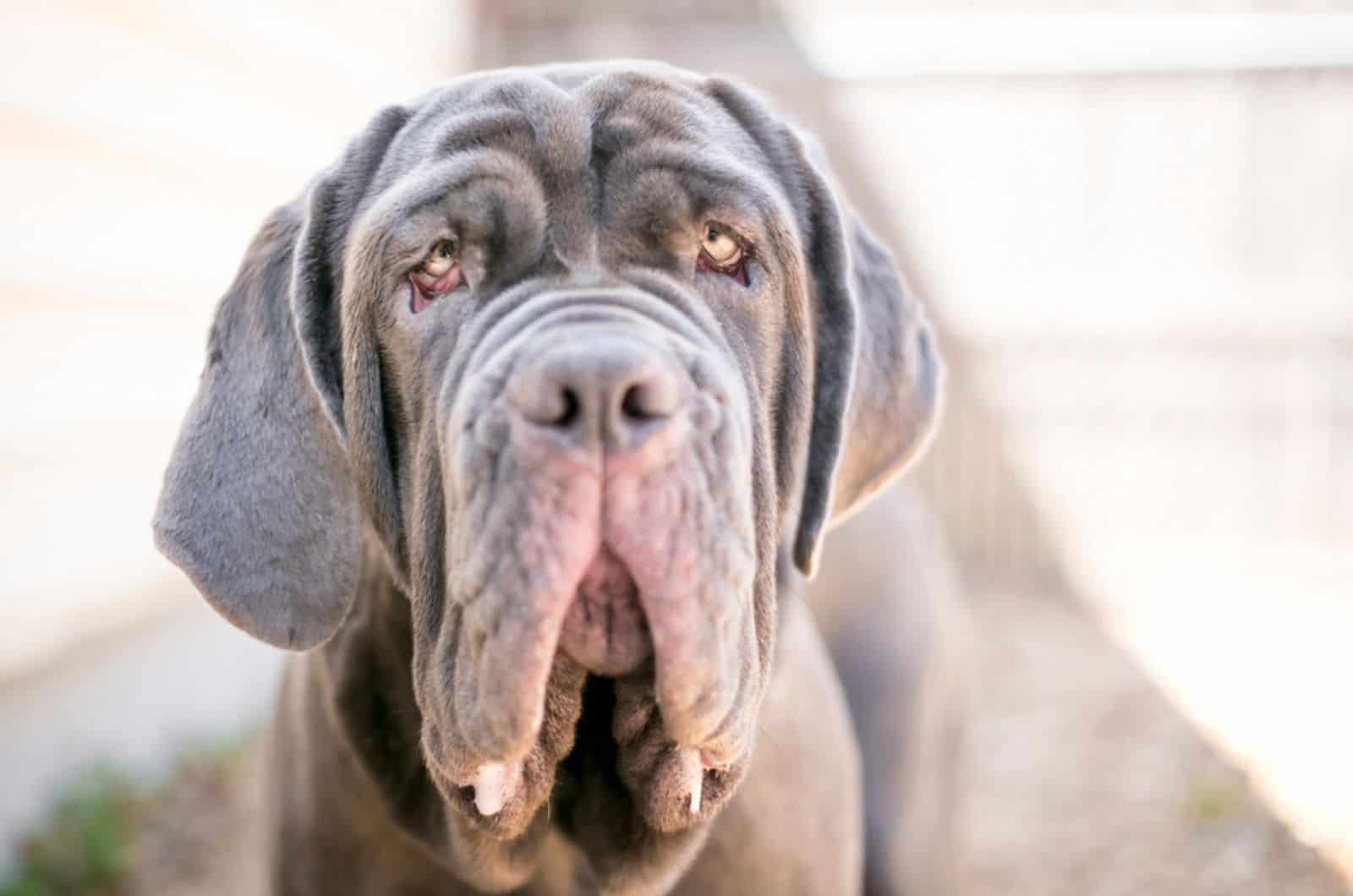

It is generally advised to take your pet to the vet once a year. A routine checkup usually entails comprehensive inspection to ensure that your dog’s health is good, as well as vaccinations, a heartworm test, and blood work (if necessary) to discover any hidden medical conditions in middle-aged and senior dogs.
We also advise using heartworm and flea preventative medication as prescribed, which typically costs $150 to $250 and $250 to 350 for the year, respectively.
Apart from these routine checkups that you should do annually, there can also be some unpredicted health issues that affect your Mastino every now and then. In the following section, we are going to talk about some of the most common health concerns that this breed faces.
Cardiomyopathy
Canine dilated cardiomyopathy (DCM) is a disease that causes the heart’s capacity to produce the pressure necessary to pump blood via the vascular system to be reduced. Its symptoms include, but are not limited to, lethargy, anorexia, labored breathing, panting, and irregular heartbeat.
Cardiomyopathies are significant conditions that require proper diagnosis and care. Early and regular treatment helps the majority of dogs with this condition. Treatment includes diagnostics and heart medications, and it typically costs between $500 and $2,000.
Cherry Eye
A prolapsed nictitans gland is what is usually referred to as a “cherry eye.” It happens after a tear gland in a dog’s third eyelid gets inflamed. Even though it is typically not too painful, occasionally a dog will rub at it as though it were itching.
Although cherry eye is not a medical emergency and your dog shouldn’t be feeling sick, it can nevertheless agitate your dog and create dry eyes, irritation, pink eye, or a serious infection.
The majority of dogs will need surgery to address cherry eye. Your veterinarian may, however, suggest a course of treatment that targets the inflammation first in some circumstances and when it is discovered early.
The average cost of cherry Eye surgery is between $300 and $500 for one eye and up to $800 for both.
Cranial Cruciate Ligament Rupture
Although it can occur in younger dogs as well, cranial cruciate ligament rupture occurs most frequently in middle-aged to older canines.
The best course of action is typically surgical repair, which can cost between $2,000 and $3,500 in addition to diagnostic procedures like x-rays and blood tests, which can cost between $200 and $400 themselves.
Additionally, bear in mind that a lot of the dogs that have torn a ligament in one knee tend to also tear the ligament in the other, because they produce more pressure on it.
You can anticipate paying $50 to $300 per month for three to four months if you opt to forgo surgery and only provide pain treatment, physical therapy, and rest.
In these situations, the dog takes longer to return to his usual activity level and runs the risk of developing more serious knee arthritis down the road, which would incur further medical costs.
Demodicosis
Demodectic mange, also known as red mange or demodicosis, is a parasitic skin infection caused by mites such as Demodex canis, Demodex injai, or Demodex cornei. Under the microscope, it looks like a cigar with eight legs.
These mites do not harm their host if the immune system is functioning properly. When this mite overgrows, it will show clinical indications in dogs with weak or weakened immune systems, including hair loss and red, scaly skin sores.
Not all cases of demodectic mange require treatment. Most cases that are localized to a small region of the body will spontaneously resolve in a couple of months with no treatment.
Other cases of localized infections can be treated with topical medication such as moxidectin and imidacloprid. If it comes to treatment, it often takes a very long time and costs around $250 to $500.
Elbow Dysplasia
When a puppy is growing, one or both elbows may develop improperly due to the painful condition known as elbow dysplasia. There are three main locations inside the elbow joint that can be impacted; some dogs only experience one of the three issues, while others experience all three.
Elbow dysplasia results in discomfort, swelling, and occasionally arthritis.
If your dog is affected by this illness, there are several treatment options that may be prescribed by the vet. These include painkillers, weight control, rest, and surgery.
If it comes to surgery, it can cost you anywhere between $2,000 and $4,000, depending on how many areas of the elbow are affected and on the severity of the issue.
Hip Dysplasia
Hip dysplasia is a disorder that develops in dogs as they are growing. It causes the hip joint to loosen, which leads to dysfunction and discomfort.
The hip’s bone and cartilage start to deteriorate as the dog grows. This eventually results in arthritis, muscular atrophy, and decreased mobility.
Large-breed dogs are more frequently affected, and research indicates that it is inherited.
The price of treatment for Neapolitan Mastiffs with hip dysplasia can vary wildly, depending on a multitude of factors. The cheapest option is to simply manage the pain with physical therapy and medication, and that usually costs between $500 and $2,500 per year for the duration of the Mastino’s life.
However, if your dog’s condition is so severe that it requires complete hip replacement, that will set you back around $5,000 to $6,000 per hip.
Pet Insurance
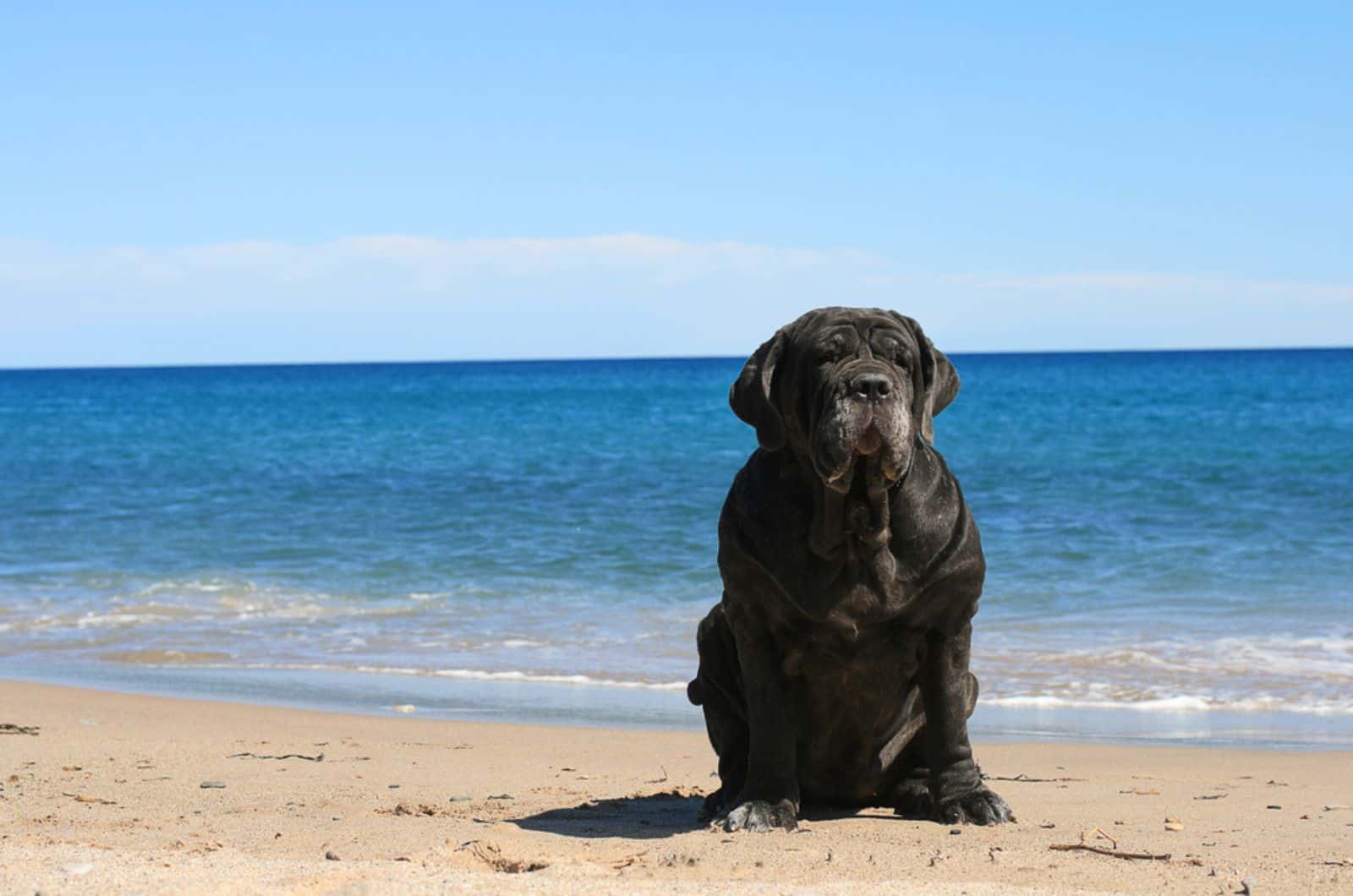

Mixed-breed dogs are more likely to develop health issues including cancer and heart problems, but purebred dogs may have a higher prevalence of some genetic ailments.
No dog owner should be forced to compromise on their pet’s care because they can’t afford it, and that’s why pet insurance is becoming more and more common in the US.
According to the North American Pet Health Insurance Association’s most recent State of the Industry Report, pet insurance will typically cost $565 per year.
This applies to both illness and accident insurance. The typical cost of accident-only policies is $190. Knowing this is particularly essential because it can reduce future charges that could be quite expensive.
With some insurance providers, it is also possible to obtain total health coverage, although the cost increases significantly.
Breed, age, location, and plan selection are just a few of the variables that will affect the cost.
Dog Food
Neapolitan Mastiffs are enormous canines that usually weigh between 110 and 150 pounds. That makes them larger than Tibetan Mastiffs, and about the same size as French Mastiffs.
Depending on the type and brand of food consumed, adults typically consume 490 pounds annually, costing in the range of $350 to $1,500 on average. Remember that the price difference between budget and luxury brands might be very large.
One thing that you can do in order to save some money on dog food is to make bulk purchases. Although dog food is perishable, it can be kept in storage for long periods of time, making bulk purchases, especially for extra-large dogs such as the Neapolitan Mastiff, a useful and inexpensive choice.
To determine the finest food for your beloved Mastino, you should also talk to your veterinarian. They can always give you some helpful tips that you might not have thought of on your own.
Dog Treats
On top of its regular diet, you will probably want to occasionally treat your beloved Neapolitan Mastiff with a tasty snack. The average yearly cost range for dog treats is between $100 and $700, depending on the brand.
This estimate of the cost of treats is based on the assumption that you give one treat per day to your Mastino. You can divide these sums by two if you give your dog a treat every other day. Divide them by seven if it happens once a week, and so on.
Just make sure that the Mastino eats its regular food first, as you don’t want your dog to eat only treats.
Neapolitan Mastiff Additional Costs
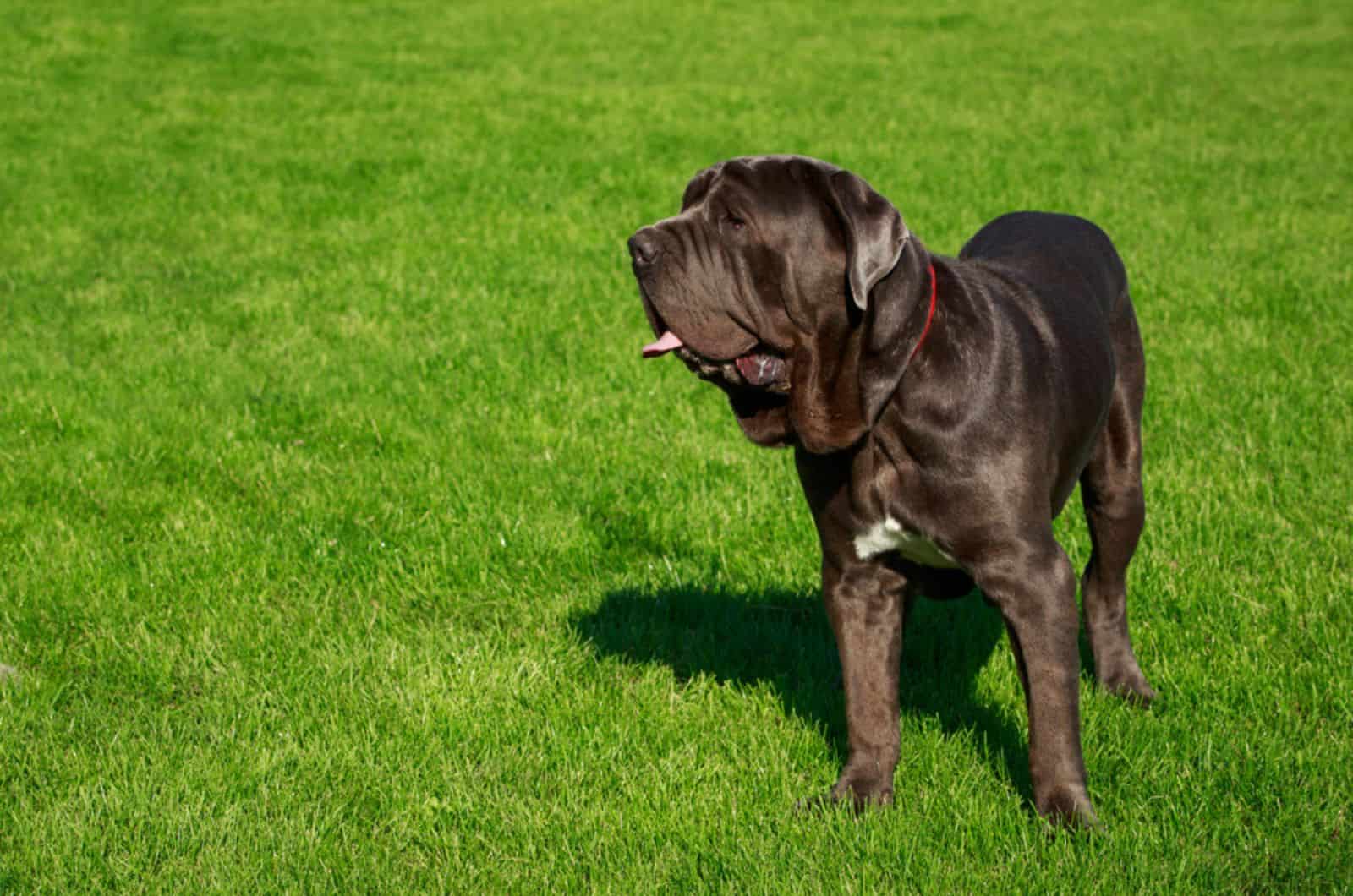

The expenses that we have covered in this article so far were mostly universal and predictable to a certain extent. However, there are always extra costs that come on top of those.
There will always be expenses that you couldn’t possibly have predicted, and that should be reflected in your budgeting.
Whether your Mastino gets an unexpected injury, it starts to hate its crate, or it wants some new toys, you should always leave some space in your budget for the possibility of some unplanned costs.
In addition to these, we wanted to mention another two expense items that you might have during your time as a Neapolitan Mastiff owner, and those are dog walking and dog boarding.
Dog Walking
Regular exercise is a must for Neapolitan Mastiffs. We strongly advise hiring a dog walker if you are unable to set aside the time to ensure that your dog gets a sufficient amount of exercise.
Typically, 30-minute walks cost between $15 and $25, whereas a one-hour walk costs $20 to $50. Walkers can be easily found online and there are even a couple of dedicated apps for that sort of thing now.
If your dog is not properly socialized, it may require private walks with more specialized walkers, and that will cost you slightly more.
Dog Boarding
Dogs should never be left alone while their owner is gone for more than a few days, let alone weeks or months.
If you book them in advance, dog boarding services are typically accessible and available. Depending on the location, services provided, and time of year, they might cost anywhere from $25 to $85. You should reserve a dog boarding service in advance at particularly busy times of the year, such as the holidays, as you are likely to receive significantly better rates.
Since these costs can quickly pile up if you have a limited budget, it is a good idea to ask any friends or family members if they would be willing to host your dog. However, keep in mind that not many individuals will be able or willing to take a dog this size home.
Finally, a lot of airlines and rail companies provide specific accommodations to help you relocate your pets, so you might be able to bring your dog with you. However, you will need to make a formal request in advance, so be sure to schedule your travels well in advance.
Additionally, the price fluctuates greatly because it is based on a number of factors.
Final Thoughts
That was the most comprehensive Neapolitan Mastiff price guide that you could ever need. We’ve touched on everything from puppy fees and other up-front charges to ongoing annual costs required to make your Mastino’s life the cozy fantasy.
Prior to getting a new dog for yourself, you should educate yourself on all the expenses involved and determine whether you can afford it. Especially if you have never owned a dog before.
We hope that this article can set you on the right path and explain all the basics that you need before getting yourself a lovely little Italian Mastino puppy.



